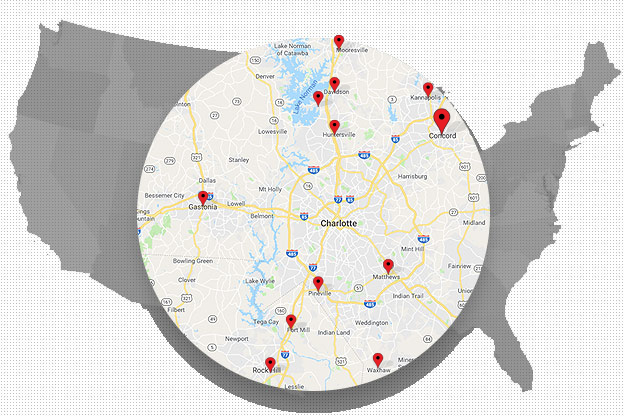13 Moisture Prevention Tips Every Homeowners Should Know

Did you know most 15 million of American homes are at an increased risk to flood? Certain states experience more flooding than others.
It’s essential to understand how to prevent water damage. If you need some prevention tips, keep reading.
In this guide, you’ll learn how to take the proper steps in the event of a flood. Whether you call a company or remove the humidity yourself, you’ll know the different options.
Check out the helpful homeowner tips below.
1. Keep Your Basement Dry
If you notice your basement seems to retain moisture, try to run dehumidifiers in the basement. You should get into the habit of emptying the dehumidifier on a regular basis.
Some homeowners will look into waterproofing their basement. You could call in a professional to inspect your basement. You should also inspect your basement after a major rainstorm.
Learn more about how to deal with basement moisture.
2. Try Using Lids on Pots
When you cook in the kitchen, get into the habit of placing lids on the pots.
You want to try and reduce the amount of moisture escaping into the atmosphere. If you don’t already have one, invest in an extractor hood above your stove. They will help get rid of water while you cook.
Some homeowners will turn off the fan as soon as they finish cooking. Yet, try leaving the fan for an extra 15 minutes because there will be lots of moisture still in the air.
Another way to deal with the moisture is by buying an extractor fan with smart humidity sensors. They will speed up as you begin boiling water or vegetables.
The fan will also adapt and slow down as the humidity levels resume to normal levels.
3. Get Into the Habit of Closing Bathroom and Kitchen Doors
While cooking food or bath, ensure the doors are closed. Kitchens and bathrooms will often be the rooms where condensation builds on windows. You don’t want the moisture in the air to move into other areas of the home.
4. Try Drying Clothes Outside
You should dry your clothes outside. This will help keep excess moisture from building up indoors. If you cant dry clothing outside, you could hang them on the shower rod and close the bathroom door.
Open the bathroom window and leave the clothes to dry.
5. Don’t Forget to Use the Fan While Showering
Showering or bathing will create steam and moisture in the bathroom. You should prop open the window and turn on your extractor fan. This will get rid of any excess condensation on the windows and walls.
6. Make Sure Your Washing Machines Have Vents
If you have a washing machine or dryer on your property, ensure the vents are in working order. Did you know one load of washing emits two liters of water into the air?
You should ensure you have appropriate venting systems set up.
7. Shift Furniture From External Walls
Keep furniture away from surrounding walls. This will improve the air circulation around your property.
Ensure the wardrobes will stay against the internal walls in the bedroom. They are often less cold than external walls and wont cause mold or dampness issues.
8. You Could Install an Extractor Fan
Appropriate ventilation is the best way a homeowner can remove moisture. You don’t want this moisture to turn into condensation. Install energy-efficient extractor fans throughout the home to improve humidity levels.
Another way to handle condensation is by installing a whole-house ventilation system.
9. Wipe Down Cold Surfaces
Another way to remove moisture from your home is to wipe down cold surfaces. You can get rid of extra water that sits on the surface. If you don’t have extractor fans, you should definitely get into the habit of doing this.
10. Do You Have Enough Heating Sources?
Heating in your property will boost the internal temperature of surfaces. This reduces the chances of condensation collecting. Improve energy efficiency by making sure you install double-glazed windows and insulated walls.
11. Try Not to Overfill Cupboards, Cabinets, and Wardrobes
Poor ventilation will actually trap moisture in cupboards and cabinets.
You might even notice over time mold growing in these areas. This is why old homes have that musty smell in the air, or clothing closets can smell this way.
12. Don’t Use Paraffin Heaters
Paraffin heaters will create tons of moisture and toxic fumes. This causes extra condensation in your home and becomes a safety hazard. Make sure you get rid of these right away.
13. Repair Any Roof Issues
Your homes roof will help protect your home and keep moisture from seeping inwards.
If you notice after a storm that some shingles are missing, call in your roofing professional. Your roof contractor will fix these problems and look for other potential issues.
Keep your roofing system in excellent shape to help prevent significant leaks in the attic. These kinds of incidents can cost tons of money to fix.
You could also hire a roofing inspector to look at the roof at least once or twice a year.
Make Moisture Prevention a Priority
Keep up moisture prevention in the fans in the bathrooms and kitchens. If your roof has a few missing shingles, make sure to call in a contractor immediately.
These prevention tips prevent moisture from building up in your home.
Do you need a specialist to inspect your house? Call us today. We will go over ways to reduce water damage and moisture in your home.
Recent Posts
- How Crawl Space Encapsulation Benefits the Environment – An Expert Guide
- 6 Ways Professionals Keep Your Crawl Space in Top Shape
- Structural Repair Solutions for Crawl Spaces, Basements, and Foundations
- Essential Crawl Space Repair Tips Every Homeowner Should Know
- The Importance of Radon Mitigation: Ensuring a Safe Living Environment for Homeowners
Categories
- Basement Mold
- Basement Waterproof Foundation
- Basement Waterproofing
- Crawl Space Dehumidifier
- Crawl Space Encapsulation Cost
- Crawl Space Repair
- Crawl Space Waterproofing
- Encapsulation
- Foundation Repair
- Foundation Waterproofing
- French Drains
- Leaky Basement
- Mold Remediation
- Mold Removal
- Radon
- Slab Jacking
- Sump Pump
- Uncategorized
- Vapor Barrier
- Water Leak
- Waterproofing
- White Mold
Archives
- June 2024
- May 2024
- March 2024
- January 2024
- June 2023
- May 2023
- April 2023
- March 2023
- February 2023
- January 2023
- December 2022
- November 2022
- October 2022
- September 2022
- August 2022
- July 2022
- June 2022
- May 2022
- March 2022
- February 2022
- January 2022
- December 2021
- November 2021
- October 2021
- September 2021
- August 2021
- July 2021
- June 2021
- May 2021
- April 2021
- March 2021
- February 2021
- January 2021
- December 2020
- November 2020
- October 2020
- September 2020
- August 2020
- July 2020
- June 2020
- May 2020
- April 2020
- March 2020
- February 2020
- January 2020
- December 2019
- November 2019
- October 2019
- September 2019
- August 2019
- July 2019
- June 2019
- May 2019

